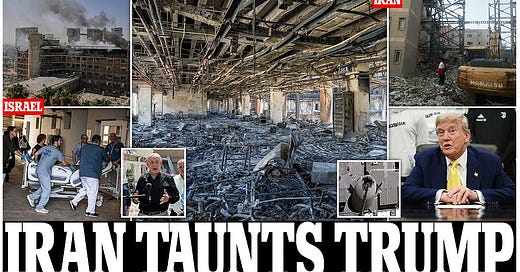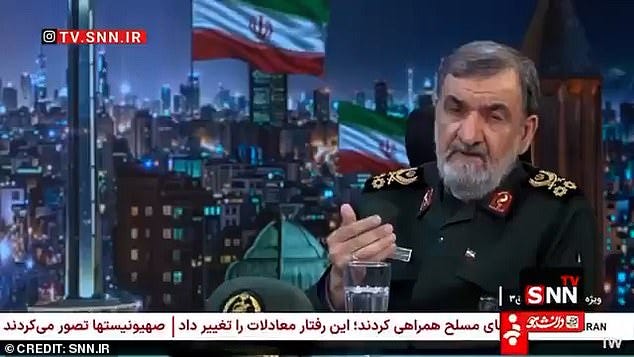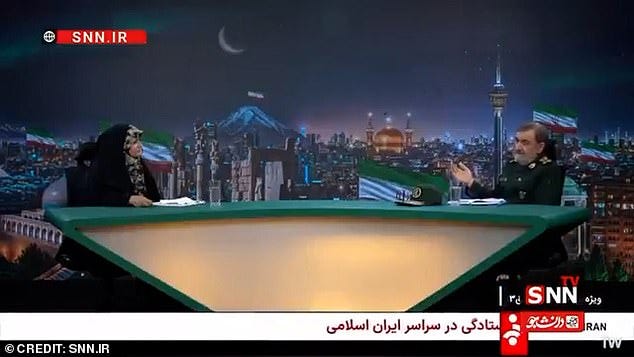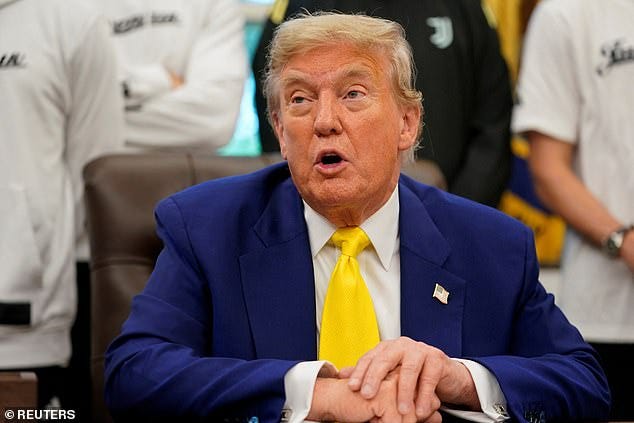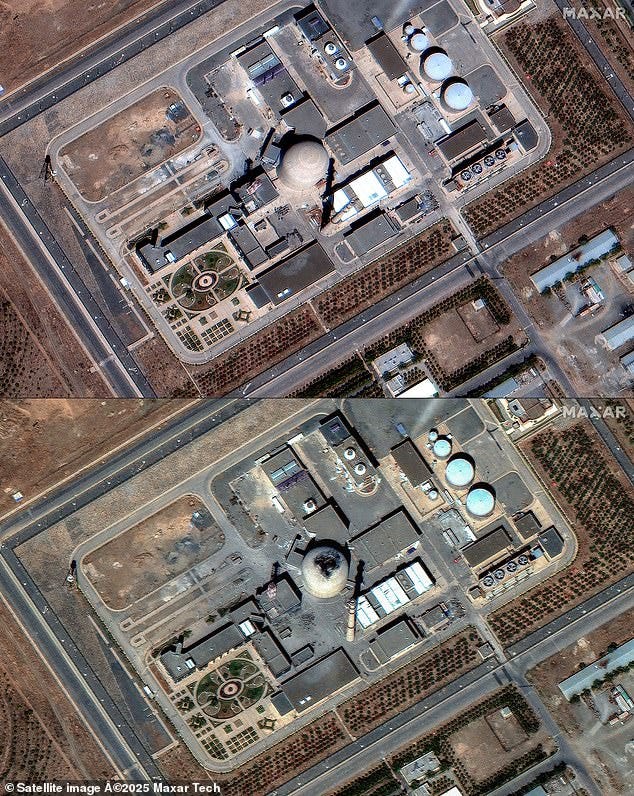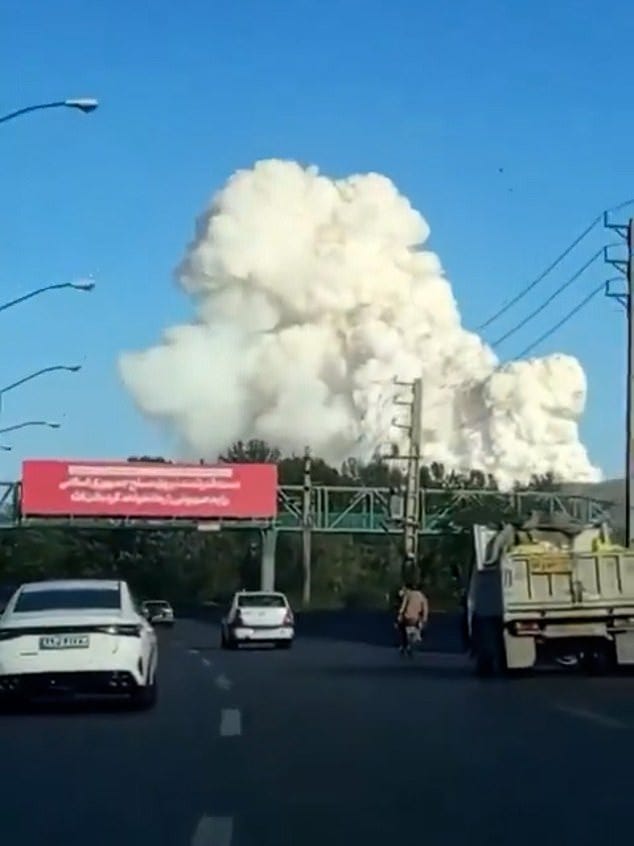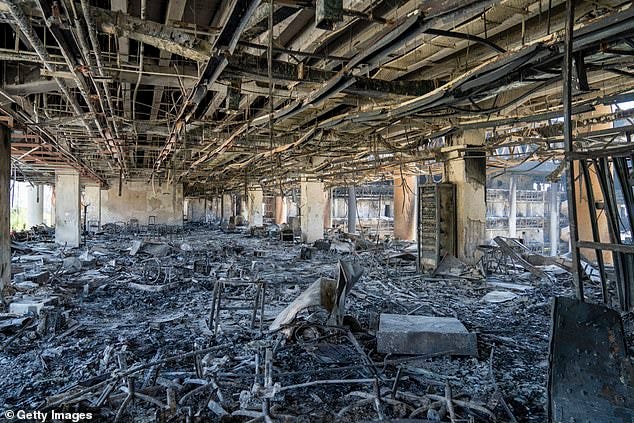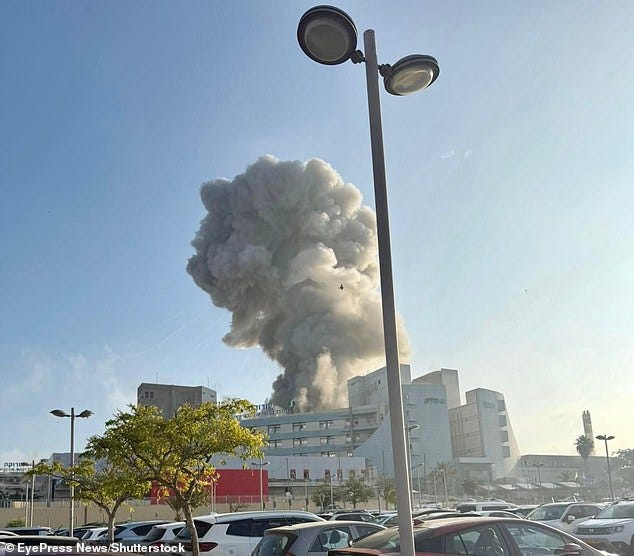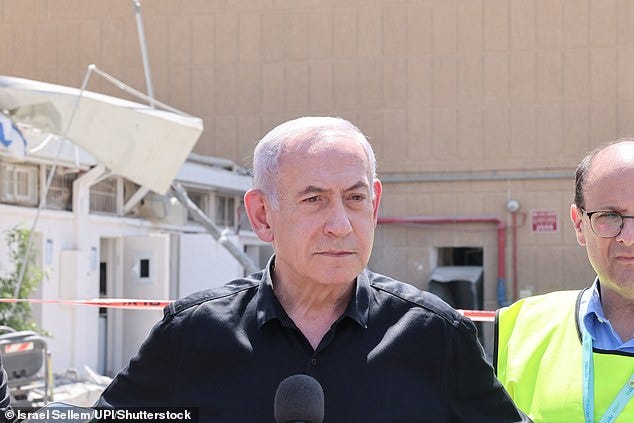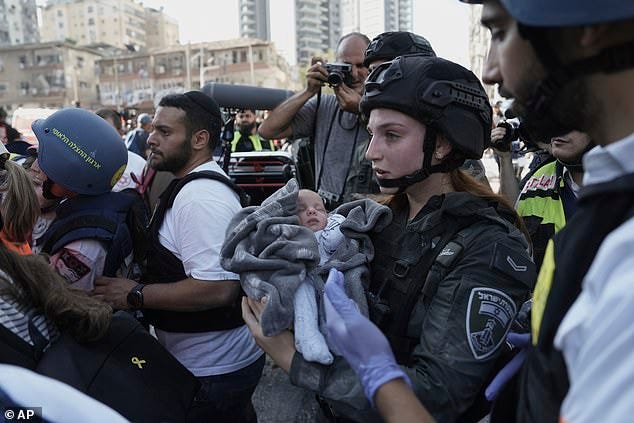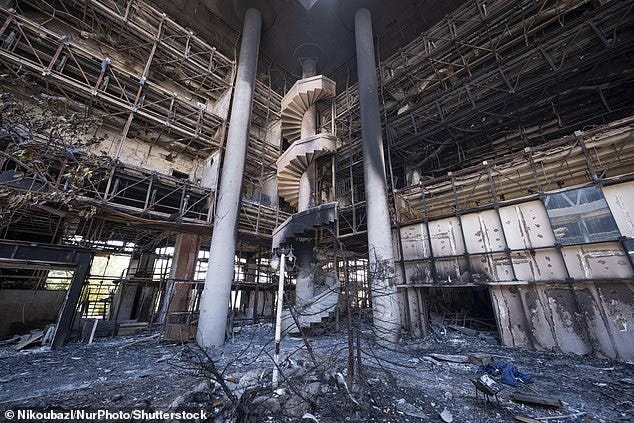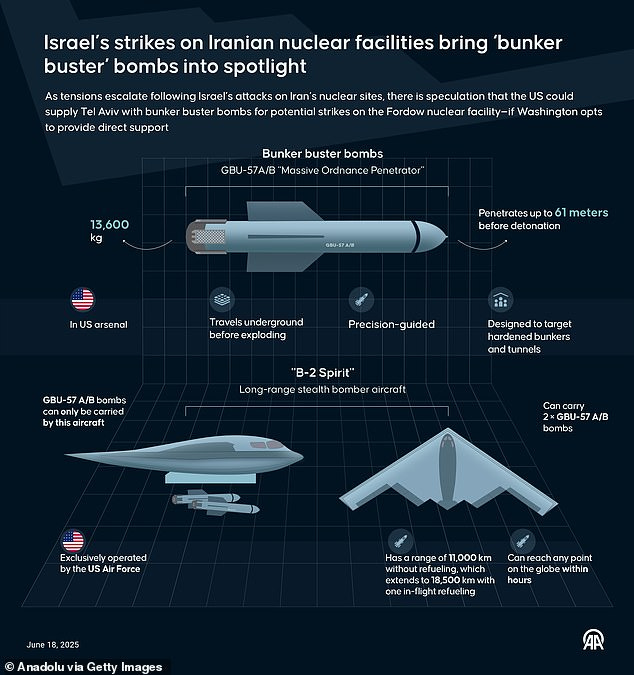Defiant Iran boasts all its nuclear material is 'in a safe place' after President Trump dramatically backed down on war
'Israel hit Natanz, Isfahan, Khandab, and Arak, but they were already evacuated.'
By MARK NICOL, NATALIE LISBONA & OLIVIA ALLHUSEN
June 20, 2025
Iran boasted that all its nuclear material had been moved to 'a safe place' before Israeli missiles struck its nuclear sites.
'Israel hit Natanz, Isfahan, Khandab, and Arak, but they were already evacuated,' Iranian commander Mohsen Rezaei said on Thursday.
'All the materials have been moved to a safe place,' he added
Israel has been launching missiles at Iran in an attempt to cripple its nuclear capabilities since last Friday, and US President Donald Trump was thinking about getting involved.
But President Trump dramatically stepped back from the brink last night as Britain prepared to take part in peace talks with Iran.
In the previous 48 hours, the US President had demanded Iran's 'unconditional surrender' and threatened air strikes 'in days'.
However, after spending the afternoon locked away in the White House Situation Room, which he has dubbed 'the War Room', he said he would give Tehran two weeks in which to make a deal.
Negotiations will start today with Britain, France and Germany due to sit down with Iran's foreign minister in Geneva.
White House press secretary Karoline Leavitt read out a statement from President Trump that said: 'Based on the fact that there's a substantial chance of negotiations that may or may not take place with Iran in the near future, I will make my decision whether or not to go within the next two weeks.'
Iranian commander Mohsen Rezaei boasted that all its nuclear material had been moved to 'a safe place' before Israeli missiles struck its nuclear sites.
He said during a TV interview: 'Israel hit Natanz, Isfahan, Khandab, and Arak but they were already evacuated'.
President Trump dramatically stepped back from the brink last night as Britain prepared to take part in peace talks with Iran.
Israel has been launching missiles at Iran in an attempt to cripple its nuclear capabilities. Pictured: The Iranian nuclear facility at Arak in central Iran on June 18, 2025 (top) and the damage at the Iranian nuclear facility after an Israeli strike on June 19.
Pictured: An image claiming to show smoke rising into the sky after an Israeli strike on an inactive nuclear facility in Arak
Pictured: Damaged equipment litters the floor of an office building used by the Iranian Broadcasting Organisation, hit by Israeli missiles days earlier on June 16.
The dramatic developments came on another day of horror as an Iranian ballistic missile struck Soroka Hospital, in Beersheba, which suffered extensive damage.
The attack, a direct hit, left 71 injured and saw Prime Minister Benjamin Netanyahu vowing revenge.
'Iran's terrorist tyrants launched missiles at Soroka Hospital and at a civilian population in the centre of the country,' he said.
'We will exact the full price from the tyrants in Tehran.'
The hospital hit threatened to tip the Middle East into all-out war as Israel's defense minister, Israel Katz, said that Ayatollah Ali Khamenei, Iran's Supreme Leader, 'can no longer be allowed to exist', branding him 'the modern Hitler'.
Netanyahu also refused to rule out an assassination attempt. The US has previously vetoed two attempts on Khamenei's life.
Israel also intensified its aerial attacks on Iran, blowing a large hole in a heavy water nuclear facility in Arak, having warned locals to evacuate the area in advance.
Earlier in the week, an Israeli strike hit the building housing Iran's state broadcaster in Tehran.
President Trump's surprise retreat appeared a victory for the UK-led diplomatic push as Sir Keir Starmer appealed for 'cool heads'.
White House press secretary Karoline Leavitt read out a statement from Mr Trump that said: 'Based on the fact that there's a substantial chance of negotiations that may or may not take place with Iran in the near future, I will make my decision whether or not to go within the next two weeks'.
The dramatic developments came on another day of horror as an Iranian ballistic missile struck Soroka Hospital, in Beersheba, which suffered extensive damage. The attack, a direct hit, left 71 injured and saw prime minister Benjamin Netanyahu vowing revenge. Pictured: Smoke billows from a building at Soroka Hospital
'Iran's terrorist tyrants launched missiles at Soroka Hospital and at a civilian population in the centre of the country,' he said. 'We will exact the full price from the tyrants in Tehran.' Pictured: Israeli Prime Minister Benjamin Netanyahu visits the Soroka hospital.
A baby is evacuated from the site of a direct hit from an Iranian missile strike in Ramat Gan, Israel, Thursday, June 19.
The Prime Minister said:
'The principle is we need to de-escalate this. There is a real risk of escalation here that will impact the region, akin to Gaza, and will impact the economy.
'Yes, the nuclear issue needs to be dealt with but it is better dealt with by way of negotiations rather than conflict.
Last night, Foreign Secretary David Lammy held talks with the US Secretary of State Marco Rubio in Washington. Lammy's also reinforced the de-escalation message.
It is understood Lammy will fly back from the US to attend the crunch discussions in Switzerland with his Iranian counterpart Abbas Araghchi.
French and German foreign ministers are also due to attend. But the countries' positions on the conflict are opposed.
France's president Emmanuel Macron has been critical of Israel and called for peace, while Germany's chancellor Friedrich Merz has supported Israel's actions.
President Trump's peace envoy Steve Witkoff is also understood to be speaking to the Iranian foreign minister, who has repeatedly insisted Iran is acting in self-defence.
Britain and Europe were also said to have warned President Trump that bombing Iran would put Westerners at risk, fearing that it would trigger a wave of revenge attacks.
Pictured: An interior view of the headquarters of the Islamic Republic of Iran News Network (IRINN) in Iran's state television compound, which was destroyed in Israeli strikes
Israel has attacked what it can but only 30,000lb US 'bunker buster' bombs have the capability to destroy plants such as at Fordow, deep in a mountain.
The two-week time limit is a tactic the President has used before, notably with Vladimir Putin over the future of Ukraine.
But, given that deadline has now twice passed without any concessions from the Russian president, questions were last night being asked of how serious all of President Trump's tough talk is.
Calls for a pause in hostilities came hours after US sources confirmed that the President had signed off on detailed plans for US operations against Iranian nuclear facilities, believing they needed to be wiped out to stop Tehran forging an atomic bomb.
Israel has attacked what it can but only 30,000lb US 'bunker buster' bombs have the capability to destroy plants such as at Fordow, deep in a mountain.
Sources told CBS News that President Trump was open to letting Iran shut down Fordow but had made up his mind that it could not continue to operate. 'He believes there's not much choice,' one source said.
'Finishing the job means destroying Fordow.'
The Israelis have also said that Operation Rising Lion, as the now seven-day bombing campaign has been called, would be a failure if Fordow remained.
Leavitt said that regime change was not President Trump's priority and called for people to 'trust President Trump'. She stressed that there was no change in the US's position that Iran cannot have a nuclear bomb.
However, his apparent climbdown may owe more to how divisive military action was among President Trump's supporters, with the question of whether to bomb Iran causing infighting among his base.
READ MORE:
Israel Opens the Door to Assassinating Iranian Supreme Leader Ayatollah Khamenei
Share or comment on this article.
Your support is crucial in exposing fake news and in helping us defeat mass censorship.
